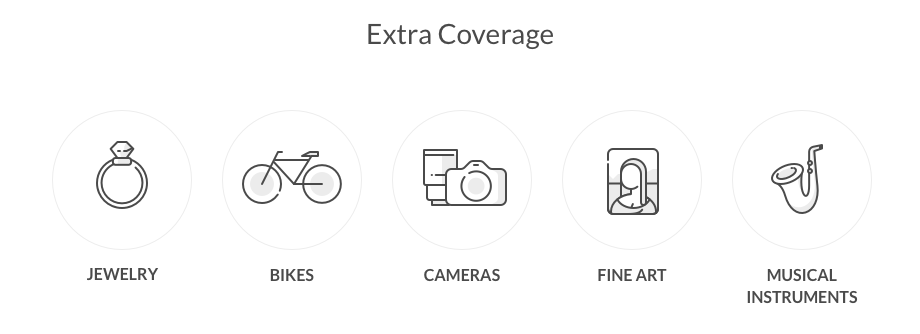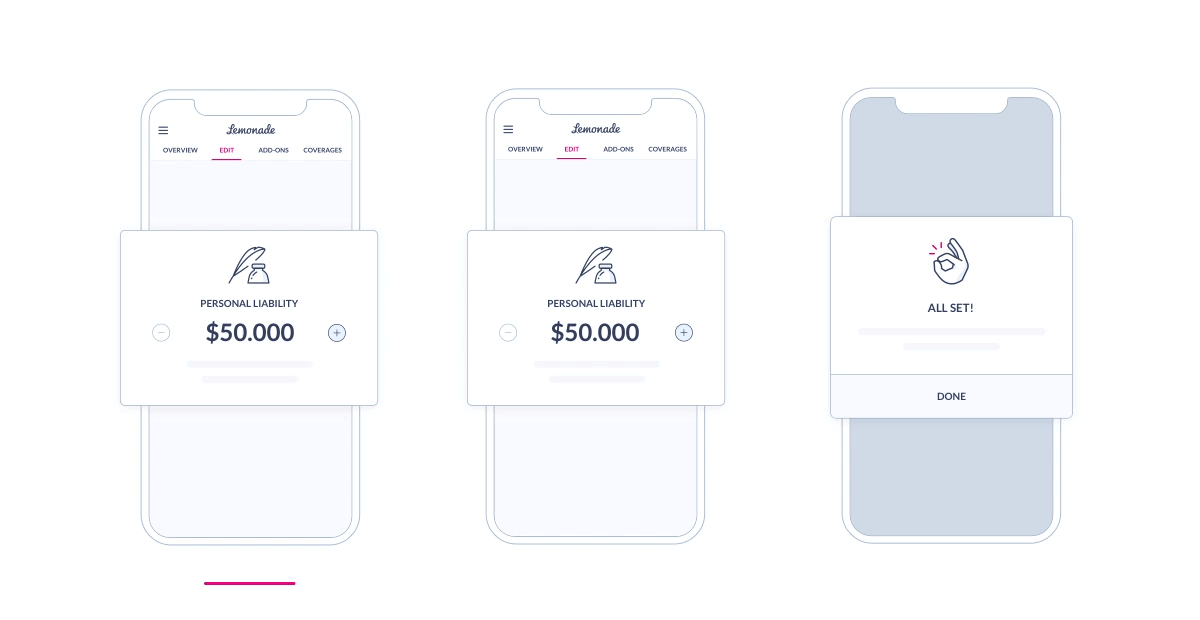Renters insurance isn’t the sexiest of topics. It’s that thing your parents always reminded you to get in case something happened in your apartment. You might have ignored them—and then kicked yourself years later after your stuff was stolen or damaged.
We’re a bit biased, of course, but we’d say renters insurance is a must-have. So why aren’t more people protecting themselves with a policy?
Truth is, many people don’t know how many situations are covered by their renters insurance. A policy will come in handy if your kitchen catches fire, or if your laptop is swiped at the library. You’ll also be covered for damages related to things like burst pipes, windstorms, and vandalism.
With rates as low as $5/month, it’s a small investment to defend against much bigger bills in the future.
Should I get renters insurance?
Maybe you’re the luckiest person alive. Maybe nothing bad ever seems to happen to you, and you simply coast through life, gliding from one magnificent success to the next.
But if you’re like the rest of us mere mortals, life is punctuated with accidents and mishaps. That’s where insurance can come into play.
Here are 3 things to consider when weighing whether or not to get renters insurance:
Your landlord’s insurance covers the building, but it doesn’t cover your personal property
Whether you’re moving into your first apartment or you’re a veteran renter, you probably have more stuff than you realize—and it might be worth more than you think. Importantly, your landlord isn’t responsible for it.
Indeed, many renters have more than $10,000 worth of personal property, by the time you add up furniture, electronics, kitchen equipment, clothing, musical instruments, and other goods. If you were robbed, you’d be saving for a long time to buy back everything you lost.
You can add Extra Coverage to your most important valuables
Do you have any especially valuable jewelry? What about bikes, cameras, fine art, or musical instruments?
For a few extra bucks a month, you can layer on additional protection for these specific items. It’s known as scheduling personal property (at Lemonade we simply call it Extra Coverage, since that rolls off the tongue a bit more easily).
The TL;DR of Extra Coverage is that it’ll allow you to make deductible-free claims on scheduled items. And in addition to the usual covered perils, these items will also be protected against accidental damage and “mysterious loss” (as in, “I haven’t seen my Nikon in weeks and have no idea where it got to”).
Renters insurance is probably cheaper than you think
Not eager to take on another monthly bill? You’re not alone. Many renters cite “it’s too expensive” as one of the top reasons for not getting insured.
But renters insurance has gotten a lot more affordable over the last few years (thanks in part to companies like Lemonade, who are leveraging artificial intelligence to imrpvoe the insurance experience).
While the average cost of renters insurance was around $22/month in 2008, you can now get a renters insurance policy for as little as $5/month.
When should I get renters insurance?
The best time to get renters insurance is immediately after reading this sentence.
Okay, we’re kidding—kind of—but having a policy in place as early as possible is a solid plan of action. Don’t succumb to that common logical trap: “Why should I waste money now protecting against a future risk that might never happen?”
You’ll also be out of luck if you wait to get a policy until an unfortunate event happens. If your living room catches fire or your bike is stolen, you won’t be able to quickly purchase renters insurance and have it retroactively cover those damages. (Nice try, though.)
How to get renters insurance, and what it includes
Getting renters insurance is a lot easier than you’d think. First, let’s break down a renters insurance policy to see what makes it tick.
A typical renters insurance policy covers three main areas:
Personal property
Personal property coverage covers your stuff, whether that’s a couch, a cardigan, or a clarinet. It can help you recover the cost of lost or damaged items for a bunch of specific scenarios, from theft to fires, windstorms, and vandalism.
So if a fire in your kitchen destroys your stuff, someone breaks in and steals your TV, or your laptop is stolen while you’re traveling abroad, renters insurance can help.
Keep in mind that if the stuff in your apartment belongs to your landlord or roommate, it isn’t covered under your policy. Any roommates you live with should get their own renters insurance policies.
Temporary living expenses
Let’s say an electric outlet sparks a fire that forces you out of your apartment and into a hotel for a few days. Your renters insurance can help cover those additional expenses, including costs for food, laundry, and other necessities.
Personal liability & medical bills
This part of a renters insurance policy helps cover damages and fees related to anyone injuring themselves at your place. It also covers any damages you might accidentally inflict on someone else or their property, as well as related legal fees. Here’s more info on liability coverage.
What you’ll need to apply for renters insurance
To apply for a renters policy, you won’t need much beyond:
- Your address
- A sense of how much coverage you’ll need (here’s a guide to figuring out how much your stuff is worth)
When signing up for a policy, you’re able to choose different coverage limits for personal liability, personal property, and so on. If you later change your mind about your insurance coverage amounts, you can revisit and update right from the Lemonade app.
How to get renters insurance with Lemonade
At Lemonade, we make insurance easy, fast, and delightful.
Thanks to Maya, our charming bot, getting a quote is fast, straightforward, and can be done right from your couch. Just answer a few questions, and you’ll generally receive a quote in less than two minutes.
So the real question is: Why wouldn’t you get a renters insurance policy right now?
A few quick words, because we <3 our lawyers: This post is general in nature, and any statement in it doesn’t alter the terms, conditions, exclusions, or limitations of policies issued by Lemonade, which differ according to your state of residence. You’re encouraged to discuss your specific circumstances with your own professional advisors. The purpose of this post is merely to provide you with info and insights you can use to make such discussions more productive! Naturally, all comments by, or references to, third parties represent their own views, and Lemonade assumes no responsibility for them. Coverage may not be available in all states.





